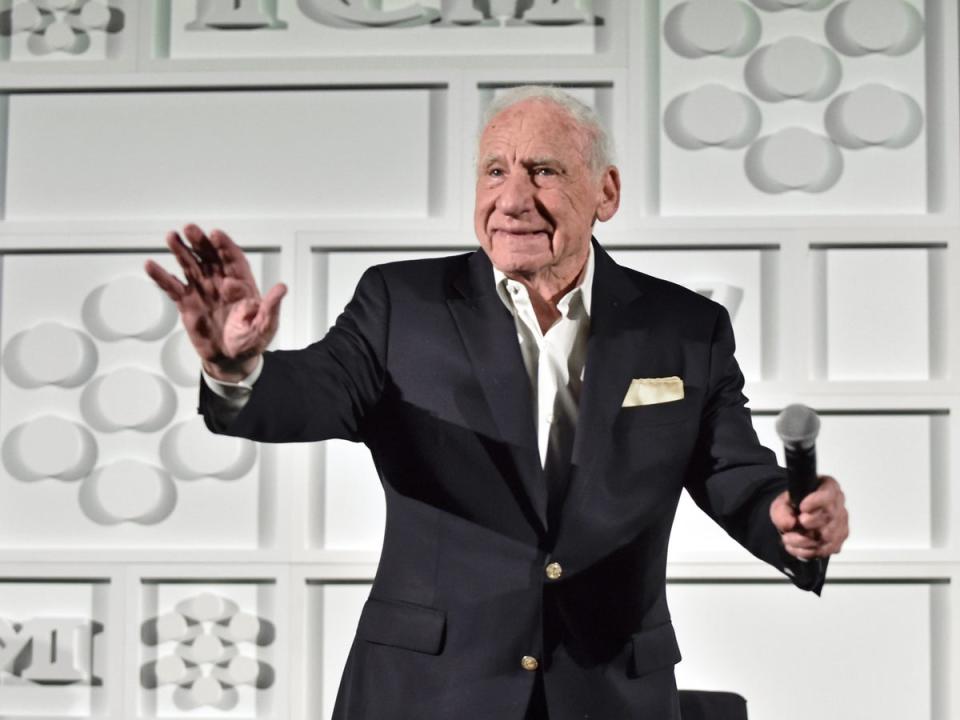Mel Brooks says he was ‘hanging onto show business with the skin of my teeth’ before Blazing Saddles

- Oops!Something went wrong.Please try again later.
- Oops!Something went wrong.Please try again later.
Mel Brooks has revealed that he was seriously considering giving up on the film industry before Blazing Saddles ended up being a hit.
The comedian, 96, would go on to be one of the most successful directors of the Seventies, but began his career with a number of low-performing projects.
Appearing on the River Cafe podcast Ruthie’s Table 4, Brooks opened up about this tough period of his career.
“Up until Blazing Saddles, I was hanging onto show business with the skin of my teeth, not making any money,” Brooks said.
“The first movie I made was The Producers. Good movie, I won the Academy Award for the screenplay, but it just about broke even.”
Brooks’ next film came in 1970 and was an adaptation of the Russian novel The Twelve Chairs. Despite Brooks believing it was “one of my best movies”, he said that “alas, it didn’t make a penny”.
As a result, Brooks said that he was considering returning to television where he was “making money”.
“And then, Blazing Saddles, that was an explosion. Busted open the doors and windows and gave me enough money to buy a house and finally pay for dinner… I was OK. Blazing Saddles did it.”

Western parody Blazing Saddles arrived in 1974 and starred Cleavon Little and Gene Wilder. It is widely considered to be one of the greatest comedy films of all time.
In 2017, Brooks shared his fears about “political correctness” in comedy, arguing that it would likely prevent Blazing Saddles from being made today.
Discussing Little’s character, a Black sheriff who is racially abused by the townsfolk, Brooks said: “Without that, the movie would not have had nearly the significance, the force, the dynamism and the stakes that were contained in it.
“It’s not good for comedy. Comedy has to walk a thin line, take risks.”

